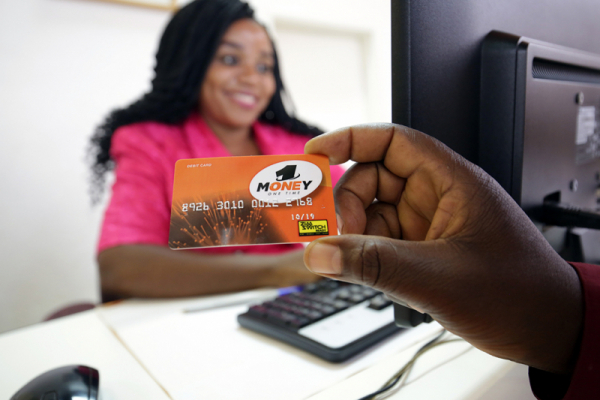
Staff Reporter ZIMBABWE is likely to miss on the US$51 billion mobile money market in Africa due to the government’s repressive and harsh policies, analysts have said. Statistics from the GSMA show that Sub-Saharan Africa will remain the fastest growing region in terms of mobile money, with a CAGR of 4.6% and an additional 167 million subscribers over the period to 2025. This will take the total subscriber base to just over 600 million, representing around half the population. Apart from increasing access to financial services, the growing mobile money industry in Africa has offered a new career path and additional income opportunities to many small-scale entrepreneurs as mobile money agents. In addition, the global COVID-19 pandemic has accelerated the need for mobile and digital technology on the continent. Several countries on the continent such as South Africa, Kenya, Tanzania, Ghana, Nigeria and Ethiopia among others, are encouraging their citizens to use mobile money instead of cash, as a way combating the deadly coronavirus. However, economic analysts say the Government of Zimbabwe’s decision to ban mobile money agents, restrict bulk transactions and limit daily transactions will result in the country missing out on various opportunities presented by digital payment platforms. “The government is simply demonstrating beyond any reasonable doubt they are anti-business and don’t understand how the modern economy operates. They are retrogressing towards a medieval economy,” said Professor Daniel Makina, an Economics lecturer with the University of South Africa. Reserve Bank of Zimbabwe (RBZ) Governor John Mangudya said a forensic audit conducted by the Central Bank to assess the integrity, compliance and efficacy of mobile money platforms and transactions in Zimbabwe revealed significant weaknesses in the systems of the mobile payment operators. “Concerted efforts are obviously required from all stakeholders to play their part in avoiding some of the vices which have been driving the parallel market exchange rate and propagating inflationary pressures in the economy,” he said, while presenting his Monetary Policy Statement last week. “These vices include the speculative and short-termism tendencies and indiscipline particularly relating to the use of the mobile money platforms which compelled government to take drastic measures to suspend agent-based mobile transactions and subsequent abolishment of agent mobile money wallet,” he said. Zimbabwe’s mobile money market is serviced by Ecocash, OneMoney, Telecash and My Cash, but Cassava Smartech – which was spun off from Econet – controls over 96% of the market through EcoCash. Former Economic Planning Minister Tapiwa Mashakada said the central bank’s assertion that Ecocash was fuelling foreign currency rates on the parallel market does not hold water. The government has since introduced a Dutch auction system to help tame illegal foreign currency trade in the country. “The major players now participating at the auction system are the same players who were yesterday allegedly sourcing forex from the black market to finance raw materials imports and other foreign payments. This had transformed the parallel market into an untamed jungle with no rules, leading to runaway parallel market rates,” he said. “All because there was not enough forex to allocate on the market through the forces of demand and supply. Similarly, the Interbank market collapsed because demand exceeded supply at the then prevailing rates. Moreover, forex buyers used the arbitrage to offload some of the forex on the black market. This saw the emergence of high premiums between the official and parallel market rates.” Mashakada, who runs the Maji-Marefu Institute, indicated that with the introduction of the auction system in June, the official rate rose from US$1:ZWL57 to 1:ZWL83 as at August 23, 2020. “In my view, it is just the official rate that has caught up with the parallel market rate. The premium still exists. For example as at 23 August, the parallel market rate was 1:ZWL120 compared to the official rate of 1:ZWL83. Which means that the Auction rate is a moving target. It will never catch up or be at par with the parallel market because importers will supplement what they get at the auction from the parallel market in order to meet their full import requirements,” he said. The former Minister also noted that the only way to kill the black market was to fully dollarize and decommission the ill-fated Zimbabwean dollar. “That being the case, there is a real danger that the parallel market rate will pull up the auction rate until the price discovery mechanism begin to fuel inflationary pressures. The auction system has temporarily managed to slow down the price level changes but this does not mean the current prices are tenable at the current levels of incomes. The auction system is fatally flawed because it is preoccupied with the demand side of foreign currency and not its supply. “The elephants in the living room are lack of forex supply response and a mono-currency that is worthless. Unless these two mischiefs are addressed, the auction system will remain a price discovery mirage,” he added. Economic analyst Francis Mukora said the government’s retrogressive decision on mobile money, which provides various financial services to people who have limited access to traditional financial institutions, especially to women and rural population, will significantly affect the poor. “The phenomenal growth of Ecocash was a result of cash shortages in the country and the public’s mistrust of the formal banking system. In the last decade alone, depositors have twice lost their money in the banks due to hyperinflation and misappropriation of funds by the central bank,” he said. “Monetary authorities should be finding innovative ways of improving confidence in the banking sector instead of forcing people to use banks, which have no capacity to include everyone in the country due to infrastructure bottlenecks.”











